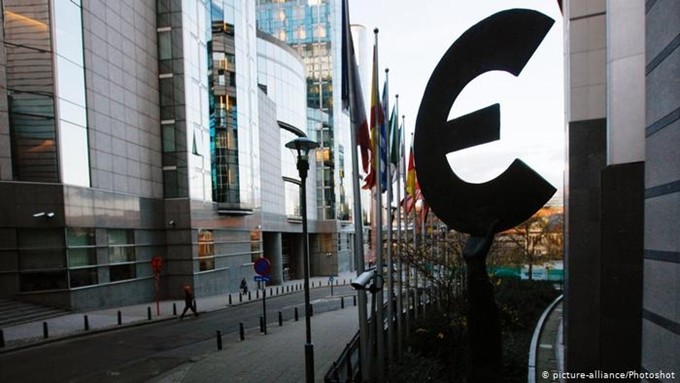(VOVWORLD) - Bad news about Europe’s economic growth was announced recently by the European Commission (EC) and other international organizations. The COVID-19 pandemic has slowed economic growth and it is predicted that Europe’s economy will not return to normal before 2023.
 (Photo: Reuters) (Photo: Reuters) |
According to the European Commission’s Standard Eurobarometer survey released on October 23, 64% of Europeans think the situation is “bad” and 42% think that their country's economy will recover from the adverse effects of the coronavirus epidemic “in 2023 or later.” The economy has become the top concern of Europeans this year ahead of immigration and climate change as indicated in the 2019 survey.
Growth forecasts lowered
In its latest forecast on Thursday, the EC said the Eurozone’s economy will grow 4.2% next year, much lower than the 6.1% projected in July. The EC believes Europe’s economy is still in decline, despite a better-than-expected recovery in the middle of this year. The slowdown has been more pronounced in some countries. Germany saw the recovery of industrial orders slow down in September, as the government imposed new health measures in response to a surge in COVID-19 cases. Specifically, industrial orders increased by just 0.5%, much lower than the 1.5% forecast. In France, business activities are forecast to drop 15% when a lockdown is imposed. Spain’s economic output is still 8.7% lower than a year ago.
Addressing a press conference following an online meeting of the EU's economic and financial ministers on Wednesday, EC Executive Vice President Valdis Dombrovskis warned of the challenging months coming for all EU members and stressed the need for coordinated policies. He urged EU members to prepare and implement reform and investment plans for economic recovery and transformation.
Financial solutions approved
According to the European Parliament website, negotiators reached a provisional agreement with the Council on Thursday to establish a mechanism that will allow the suspension of budget payments to any member state that violates the rule of law. The decision to suspend payments will have to be made of by a qualified majority of the Council acting on the proposal of the European Commission.
On October 7, the European Parliament called for enforcement of the rule of law across Europe through a new mechanism and effective sanctions on member states found to be in violation. EU leaders agreed in July to introduce “rule of law conditionality,” meaning to make receipt of EU funds by a member state dependent on its respect for the rule of law.
The mechanism is expected to remove the deadlock in adopting a long-term budget of 1.1 trillion euros and a recovery package worth 750 billion euros. German Ambassador to the EU Michael Clauss called this an important turning point toward approving the EU budget and economic bailout package.
Meanwhile, the Bank of England on Thursday announced it will pump an additional 150 billion pounds (195 billion USD) into the market as the UK economy sinks deeper into recession.